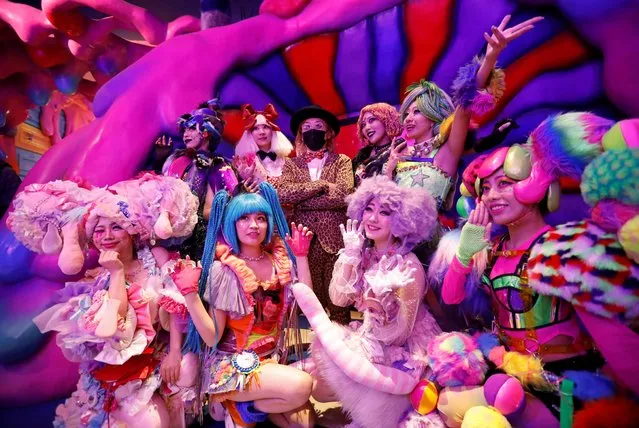
Staff members of Kawaii Monster Cafe called “Monster Girls” poses with Sebastian Masuda, an artist and designer of the cafe, before the cafe ends its five-year run operation on the day, amid the coronavirus disease (COVID-19) outbreak, in Tokyo, Japan on January 31, 2021. The iconic cafe and show venue that symbolizes Japan's “kawaii” pop culture, and is beloved by tourists and celebrities, has shut its doors in Tokyo after business dried up following the COVID-19 pandemic. (Photo by Issei Kato/Reuters)
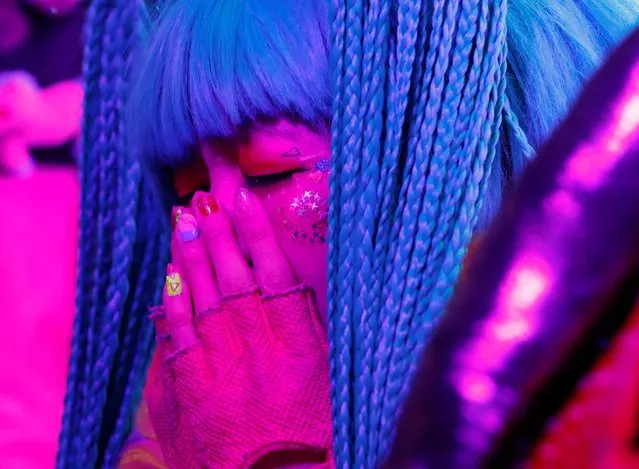
A staff members of Kawaii Monster Cafe called “Monster Girls” wipes her tears as she performs on the stage before the cafe ends its five-year run operation on the day, amid the coronavirus disease (COVID-19) outbreak, in Tokyo, Japan on January 31, 2021. A funky aesthetic of outlandish colors and designs made Kawaii Monster Cafe in the capital's youth culture hotspot of Harajuku a hit, drawing overseas A-listers, such as reality star Kim Kardashian, singer Dua Lipa and Jenny of K-pop's Blackpink. (Photo by Issei Kato/Reuters)
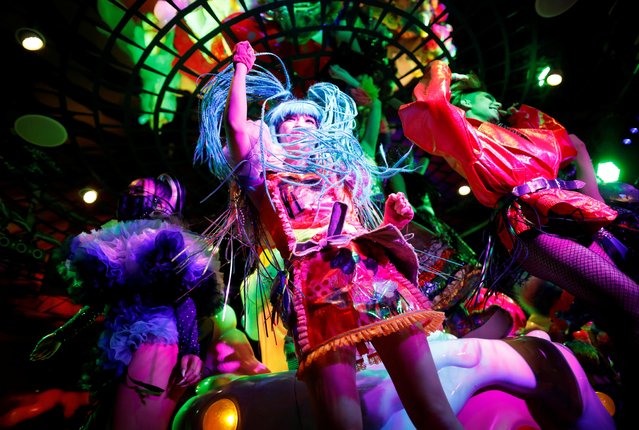
Staff members of Kawaii Monster Cafe called “Monster Girls” perform on the stage at the cafe amid the coronavirus disease (COVID-19) outbreak, in Tokyo, Japan on January 31, 2021. The cafe had hoped to capitalize on strong demand during the 2020 Olympics, but with the outlook still uncertain after the virus forced a year's delay in the Tokyo games, a decision was made to let the lease expire and shut down. “I feel it is very hard to keep the business going, without knowing how long the current situation will last”, cafe manager Keisuke Yamada told Reuters. “It is difficult for overseas customers to come to Japan, and it is also difficult for customers in Japan to go out”. (Photo by Issei Kato/Reuters)
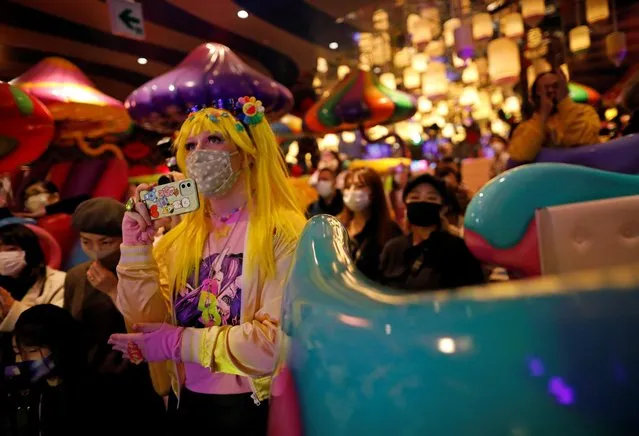
Guests watch the performance by the staff members of Kawaii Monster Cafe called “Monster Girls” before the cafe ends its five-year run operation on the day, amid the coronavirus disease (COVID-19) outbreak, in Tokyo, Japan on January 31, 2021. While Sebastian Masuda, the artist who designed the sprawling cafe, said he was sad to see it close, he remained upbeat on the future of the trend-setting district. “In Harajuku, regardless of age and era, the younger generations will always create new cultures. So I believe that the young generation will make something interesting again”. (Photo by Issei Kato/Reuters)
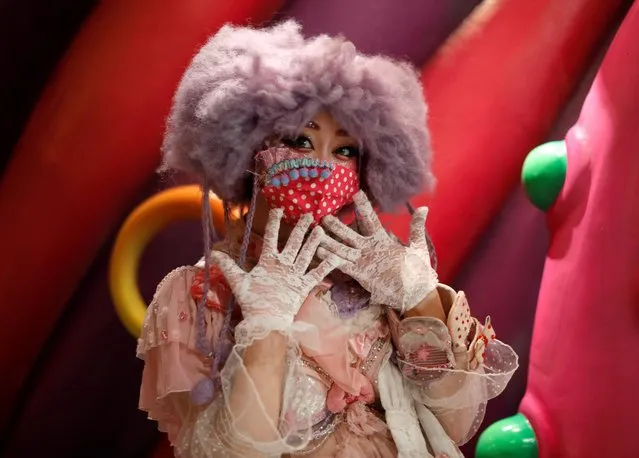
Monster girl Baby Manafy, an iconic Harajuku girl and a staff member of the cafe, wearing a face mask poses for a photograph at Kawaii Monster Cafe, amid the coronavirus disease (COVID-19) outbreak, in Tokyo, Japan on January 31, 2021. (Photo by Issei Kato/Reuters)
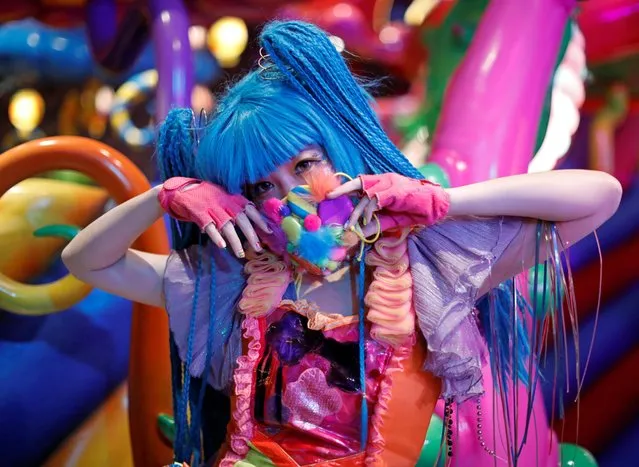
Monster Girl Candy Asachill, an iconic Harajuku girl and a staff member of the cafe, wearing a face mask poses for a photograph at Kawaii Monster Cafe, amid the coronavirus disease (COVID-19) outbreak, in Tokyo, Japan on January 31, 2021. (Photo by Issei Kato/Reuters)
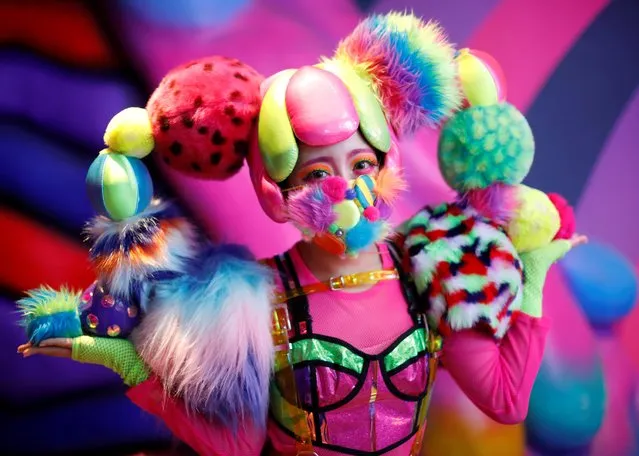
Monster X Mush Rarity, an iconic Harajuku girl and a staff member of the cafe, wearing a face mask poses for a photograph at Kawaii Monster Cafe, amid the coronavirus disease (COVID-19) outbreak, in Tokyo, Japan on January 31, 2021. (Photo by Issei Kato/Reuters)
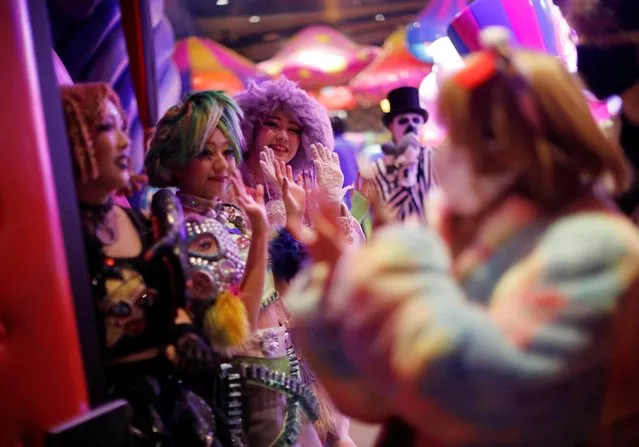
Staff members of Kawaii Monster Cafe called “Monster Girls” send off guests before the cafe ends its five-year run operation on the day, amid the coronavirus disease (COVID-19) outbreak, in Tokyo, Japan on January 31, 2021. (Photo by Issei Kato/Reuters)
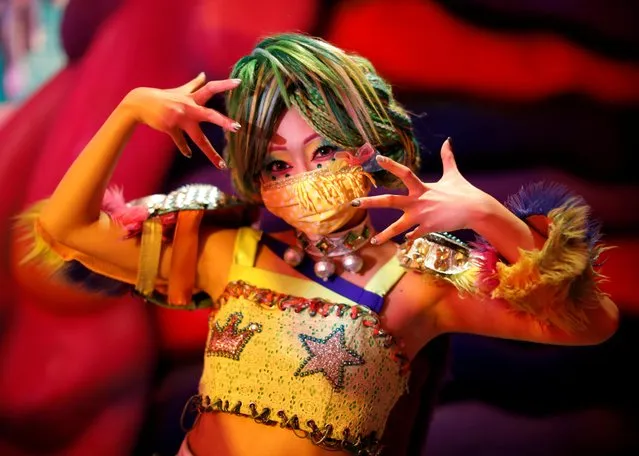
Monster girl Crazy Sa-ya, an iconic Harajuku girl and a staff member of the cafe, wearing a face mask poses for a photograph at Kawaii Monster Cafe, amid the coronavirus disease (COVID-19) outbreak, in Tokyo, Japan on January 31, 2021. (Photo by Issei Kato/Reuters)
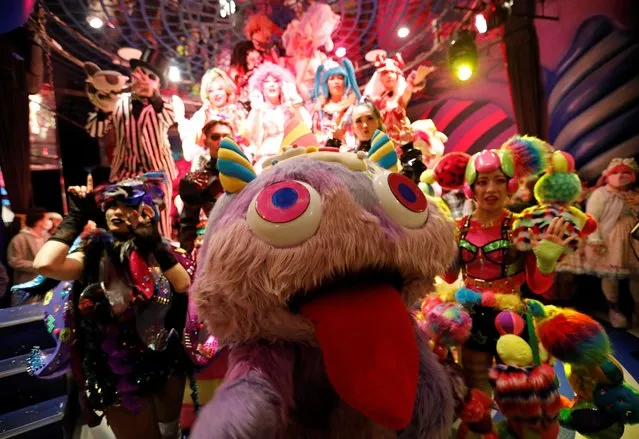
Staff members of Kawaii Monster Cafe called “Monster Girls” pose for a photograph with other performers before the cafe ends its five-year run operation on the day, amid the coronavirus disease (COVID-19) outbreak, in Tokyo, Japan on January 31, 2021. (Photo by Issei Kato/Reuters)
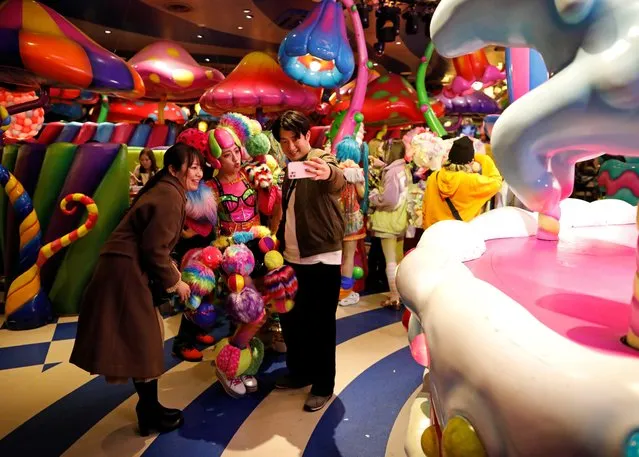
Guests try to take selfie photos with a staff member of “Monster Girls” at Kawaii Monster Cafe amid the coronavirus disease (COVID-19) outbreak, in Tokyo, Japan on January 31, 2021. (Photo by Issei Kato/Reuters)
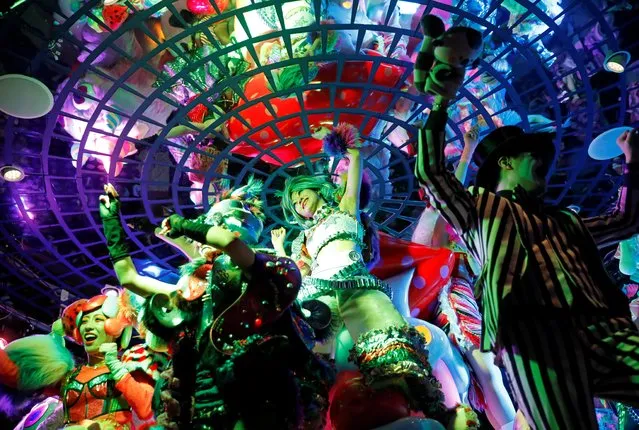
Staff members of Kawaii Monster Cafe called “Monster Girls” and other dancers perform on the stage at the cafe amid the coronavirus disease (COVID-19) outbreak, in Tokyo, Japan on January 31, 2021. (Photo by Issei Kato/Reuters)
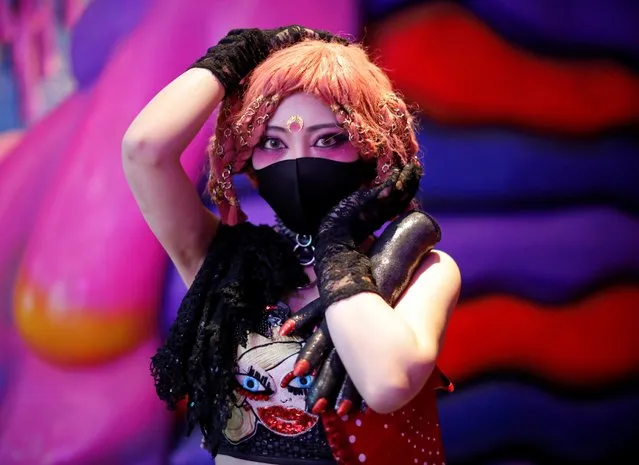
Monster Girl Reo, an iconic Harajuku girl and a staff member of the cafe, wearing a face mask poses for a photograph at Kawaii Monster Cafe, amid the coronavirus disease (COVID-19) outbreak, in Tokyo, Japan on January 31, 2021. (Photo by Issei Kato/Reuters)
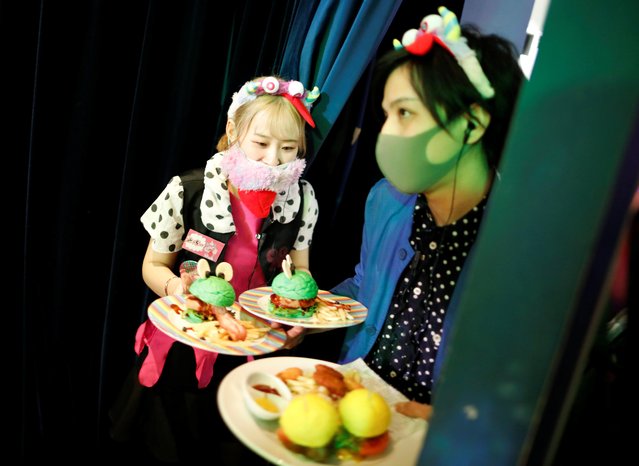
Staff members wearing protective face masks serve foods to guests at Kawaii Monster Cafe amid the coronavirus disease (COVID-19) outbreak, in Tokyo, Japan on January 31, 2021. (Photo by Issei Kato/Reuters)
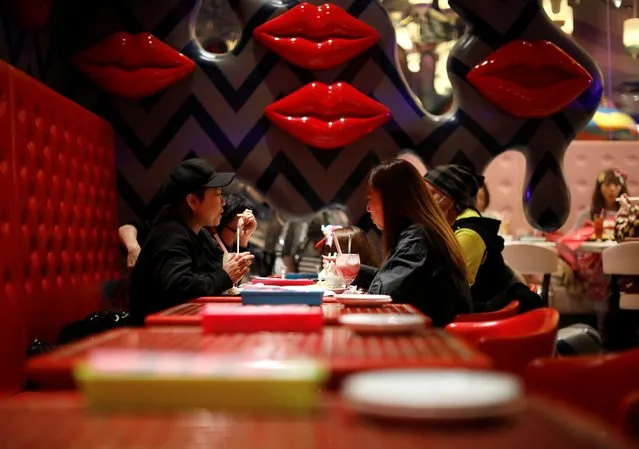
Guests enjoy drinks and food at Kawaii Monster Cafe amid the coronavirus disease (COVID-19) outbreak, in Tokyo, Japan on January 31, 2021. (Photo by Issei Kato/Reuters)
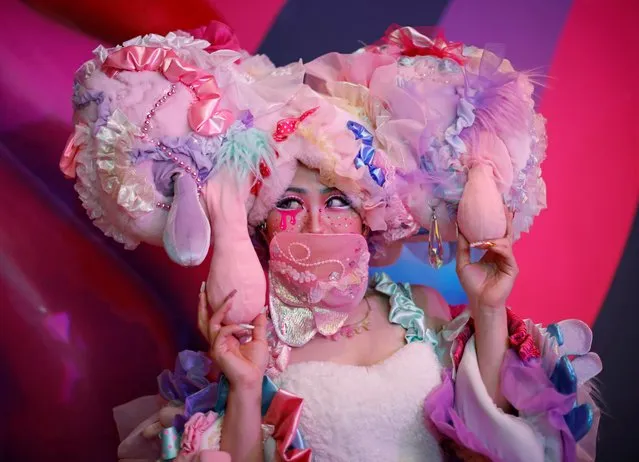
Monster X Ciel, an iconic Harajuku girl and a staff member of the cafe, wearing a face mask poses for a photograph at Kawaii Monster Cafe, amid the coronavirus disease (COVID-19) outbreak, in Tokyo, Japan on January 31, 2021. (Photo by Issei Kato/Reuters)
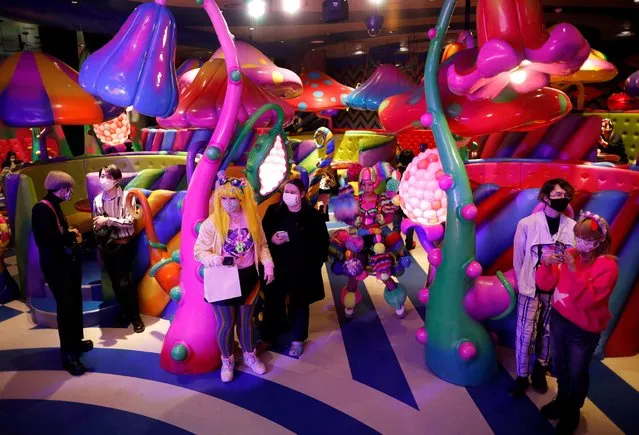
Guests and staff members are seen at Kawaii Monster Cafe amid the coronavirus disease (COVID-19) outbreak, in Tokyo, Japan on January 31, 2021. (Photo by Issei Kato/Reuters)
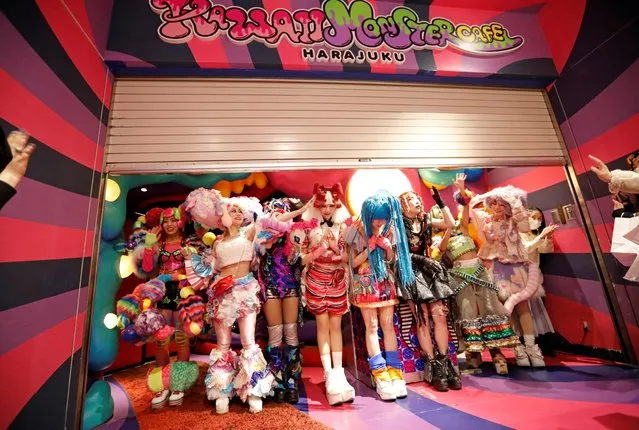
Staff members of Kawaii Monster Cafe called “Monster Girls” wave and bow to guests while the entrance shutter gate goes down as the cafe ends its five-year run operation on the day, amid the coronavirus disease (COVID-19) outbreak, in Tokyo, Japan on January 31, 2021. (Photo by Issei Kato/Reuters)
05 Feb 2021 09:32:00,
post received
0 comments
